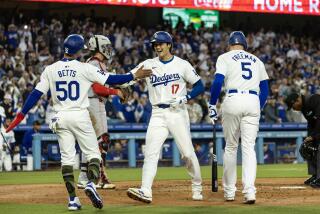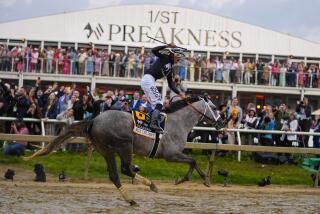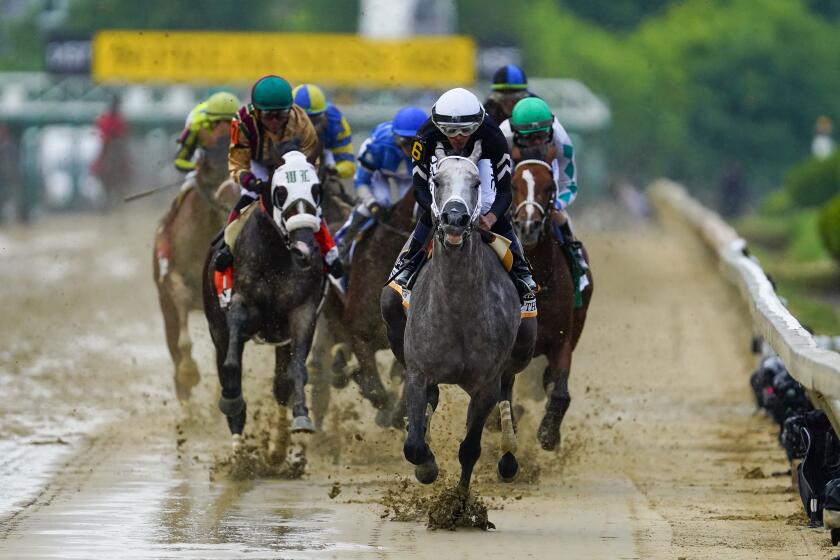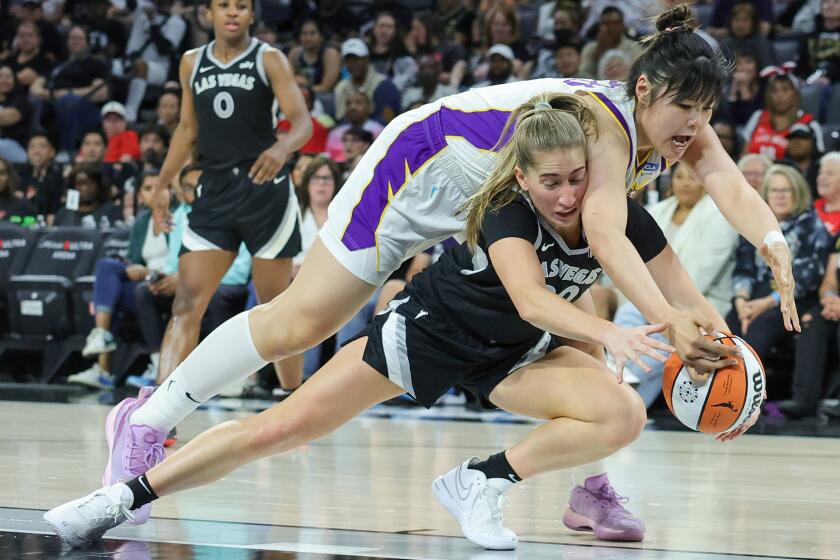What Have the Cavaliers Learned Starting Three Rookies All Season?
At times, the 1986-87 Cleveland Cavaliers have been more of a laboratory experiment than an NBA team.
Coach Lenny Wilkens sensed the NBA’s collective focus on his team even before the season opener against Washington last Nov. 1.
His decision to start three rookies--guard Ron Harper, forward John (Hot Rod) Williams and center Brad Daugherty--seemed akin to the mad scientist who blends three chemicals in a test tube and waits for the reaction.
“I knew it was taking a lot of chances,” says Wilkens, whose team was eliminated from the playoffs March 25. “Let’s face it--rookies make rookie mistakes. That means poor shot selections, turnovers, fouls, and they all mean losing games.
“But the other side of the coin is this--give the kids plenty of playing time and hope they learn from both their mistakes and their successes. I know other teams have been watching this.”
Predictably, there have been few of the latter. Cleveland won only 29 games last year and has been struggling to top that figure before this season ends.
The rookie triumvirate has performed more or less as expected. Though Harper’s flashy moves and 23 points per game scoring average have delighted fans, he has allowed too many turnovers. Still, he has been undaunted by NBA defenses.
Williams has had an erratic season, as has Daugherty, but has shown a strong rebounding ability and a knack of blocking shots.
Daugherty has adapted his game to include a deft passing touch, and is slowly learning to hold his ground when pushed around by the league’s burlier pivotmen.
With guards Mark Price and Johnny Newman also on the roster, Cleveland has five rookies. The front office’s decision to go with youth resulted in two veterans not being re-signed (World B. Free and Edgar Jones) and two being traded (Dirk Minniefield and Ben Poquette).
Cavalier General Manager Wayne Embry defends the move by saying the team has assembled a blend of raw talent and veterans.
“You have to assure the rookies enough playing time so that they’ll develop,” he says. “Having (small forward) Phil Hubbard and (point guard) John Bagley in the lineup along with (reserve guard) Craig Ehlo means we do have floor leadership.
“Certainly, there have been times when the young players have cost us ballgames. A veteran hand at the time might have snatched victory from the jaws of defeat. But, think of what will happen next year and the year after.”
The rest of the league is thinking, and some teams may already be emulating the Cavaliers. Seattle, for instance, has been stockpiling top draft picks.
“We have the opportunity to have a lot of young, top talent in the next few years,” says SuperSonic Coach Bernie Bickerstaff. “Naturally, we’ve watched Cleveland with interest.
“We played them in February and again in March. There was only two weeks difference, but I noticed an improvement in Daugherty’s play. He seemed more confident.”
Other coaches also have noticed the Cavaliers’ improvement. Philadelphia’s Matt Guokas, whose team traded Cleveland the top overall pick used to draft Daugherty in exchange for veteran forward Roy Hinson, praised Wilkens for his work.
“I think it takes a lot of fortitude and a stick-with-it attitude to guide three rookie starters,” he says. “Lenny Wilkens has done a very fine job with them, and they’ve responded.
“I’m not sure if this means a trend the rest of the league will copy, but people certainly are talking about the Cleveland Cavaliers.”
Milwaukee Coach Don Nelson, who serves as the team’s vice president of basketball operations, also has been keeping track of Cleveland.
“When you evaluate the Cavaliers, you have to ask yourself if there’s been any improvement over the course of the year,” he says. “Since they’re in the same division we are (the NBA Central), we naturally have watched closely.
“It sure looked like a gamble, but I think the Cavaliers will be true contenders in a year or two. I don’t know if other teams can afford to start three rookies, but I’m sure there’ll be some thinking on the subject around the league.”
When Hubbard, an eight-year veteran, learned that Wilkens planned to start the young trio, he said he immediately accepted the notion.
“I knew it would be a challenge,” he says. “I didn’t really look at the fact that they were taking the spots veterans had last year, though the fact other players were gone did make me feel badly.
“I just saw it as a way for the Cavaliers to develop into winners. I still do. The key is having players who are willing to listen and learn, and we do. I really think this season will pay dividends for us down the road, and other teams probably will want to give their rookies more playing time.”
More to Read
Get our high school sports newsletter
Prep Rally is devoted to the SoCal high school sports experience, bringing you scores, stories and a behind-the-scenes look at what makes prep sports so popular.
You may occasionally receive promotional content from the Los Angeles Times.






